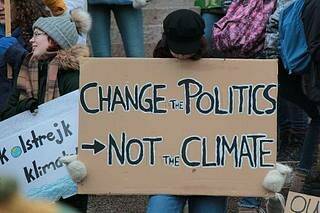The state of our city

Beginning on Sept. 22, New York City will be the site for two important events. On Sept. 22-23, the United Nations is hosting the Summit Of The Future.
Declaring that the world is in crisis and that our leaders have not kept pace with the “risks and opportunities of the 21st century,” this summit is asking the attendees to choose between breakdown or breakthrough.
One of the key themes for the gathering is to identify ways to strengthen the world’s actions and collaborative efforts to address climate change; especially with regards to its impacts upon vulnerable populations.
And from Sept. 22 to 29, New York City will also host Climate Week 2024.
Titled “It’s Time,” this week-long event will highlight the urgent need to address climate change by advocating that cities like New York City undertake such initiatives as tripling renewable capacity and doubling energy efficiency.
Also, they are proposing that every policy, risk assessment and business decision incorporate climate actions.
The introduction to the week’s opening ceremony states, “We’re living in a state of climate emergency. Emissions are still far too high to avoid overshooting a 1.5 temperature rise which can happen as soon as this year, for the first time ever. We cannot continue business as usual. Our efforts can no longer be piecemeal and we cannot wait for those that are failing to take bold action. To prevent unimaginable and irreparable damage to the planet from taking hold, we must go where we have not gone before. We must change course, now.”
While reading about the upcoming Summit and Climate Week in New York City, I began thinking about Duluth and our own climate challenges. Inevitably, I had to ask myself – where are we now and where do we go from here?
It was in April 2021 that the Duluth City Council publicly acknowledged, with the passage of a climate emergency resolution, that we were facing a climate emergency. City government hired a sustainability director and began examining city policies and programs with regards to climate change impacts.
But after three years, we have to ask if our city government and every sector of the city are taking the necessary steps to address climate change with a greater sense of urgency.
During the past year, we’ve seen how climate change has contributed to a number of extreme weather events that have taken place around the world.
On Sept. 13, Reuters reported that South America now has 346,112 fire hotspots in 2024, which surpasses the 2007 record. Also, the Sustainable Note website reported that the Mediterranean region is experiencing an extreme heatwave and the Mediterranean Sea now has temperatures four to six degrees Celsius above normal.
In the past week, the journal Nature Geoscience published a paper which showed how global warming will produce decade-long periods of rapid changes in temperatures and rainfall.
Other notable climate events included Copenhagen recording the hottest September night in history, northern Norway setting a new September heat record, severe droughts in Bosnia and Poland bringing record low water levels, and in South America, Columbia recording the hottest September day in that country’s history.
As we look around the world and seriously consider the growing climate emergency that we’re all facing, we need to ask if Duluth realizes that we are past business as usual and must undertake some bold actions to address climate change and its numerous impacts upon our city.
Will Duluth be able to keep pace with the climate risks and opportunities to address climate change in the next 50 years?
The CO2 atmospheric levels continue to rise and 2024 will see the hottest recorded global temperatures in modern history. This climate-change world will very much challenge how we live, how we eat, how we travel and how we do business.
During the week of Sept. 22-29, we’ve decided to undertake a local campaign in Duluth to not only raise the level of awareness and understanding about climate change but to hopefully engage the citizens of our city to get more involved in various actions and initiatives to address climate change and its numerous impacts upon the people and the environment.
We will share some of our best interviews with the Climate>Duluth series at PACT-TV on social media. We will work with the local bookstores to promote some of the latest books on climate change. We will also present some of the leading climate change organizations, which some of you may be interested in joining or supporting.
And we will continue developing the Duluth Climate Commission platform to promote citizen participation in addressing climate change in our city.
We need to ask ourselves if Duluth truly understands climate change and if the city understands what choices or decisions that we’ve collectively made in the past which have contributed to climate change.
And at this moment, we have to ask who in Duluth is willing to take the necessary actions to get out of our collective comfort zone and begin adapting to this climate emergency, especially with regards to the vulnerable populations in our city.
Yes, it’s about time.
